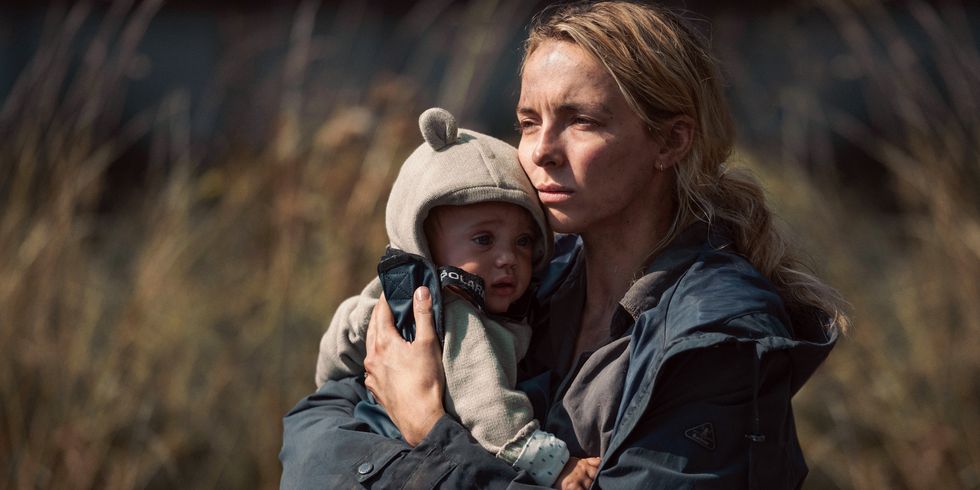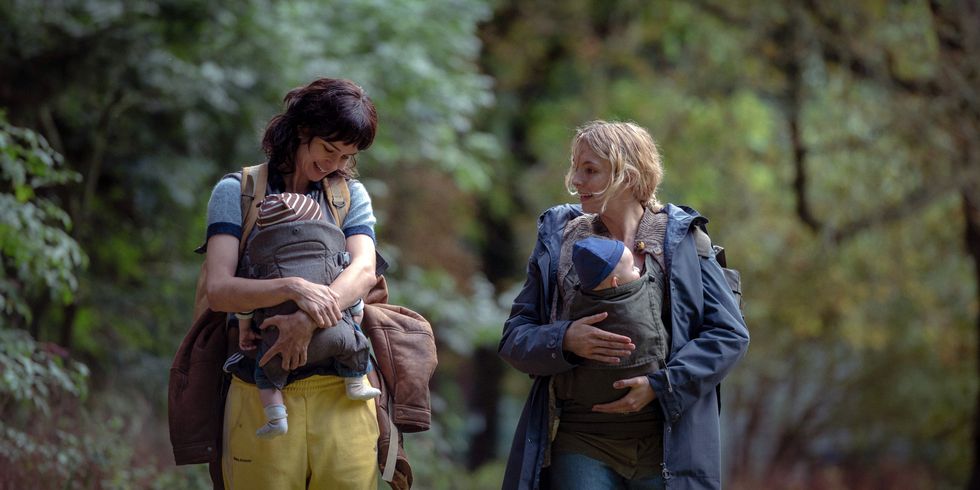Puberty Brings Out the Monster Within in Feisty Malaysian Genre Movie
Bold 12-year-old Zaffan (Zafreen Zairizal) is the natural leader among her group of gal pals, all currently seniors at their religious primary school. She’s the one who wears a bra under her proper Islamic attire, doffs said attire to splash in an idyllic forest pool and does wild dances for TikTok.
Although she hangs out with Zaff, the younger-seeming Farrah (Deena Ezral), a spiteful prefect, is actually both jealous of and disgusted by her. Meanwhile sweet-faced Mariam (Piqa) tries to keep the peace as the trio wend their way home, meowing when they are being catty, gluing colorful stickers everywhere and filming themselves on their phones.
When Zaff becomes the first girl in the school to start menstruating, it catalyzes physical changes in her as well as the sudden loss of her top-girl status, orchestrated by the sneaky Farrah who doesn’t miss a chance to shame her and get the others to ostracize her as well. Things aren’t exactly period positive at home either as her stern mother tells her, “You’re dirty now.”
Zaff doesn’t have any one to talk to about what’s going on; about the viciousness of her former friends, her physical transformations and urges, or her sightings of a red-eyed female demon among the treetops. Although she tries to hide by adding gloves to her modest Islamic dress, the more she is provoked, the more she transforms into a were-tiger, capable of bounding up trees (courtesy of a kind of cheesy but charming special effect) and killing and eating small animals.
When Farrah leads the other girls in brutally bullying Zaff in the seniors’ toilet one day, Zaff decides to embrace her monstrosity and release her inner tiger, causing hysteria amongst the girls and the teachers. Unctuous publicity hound Dr. Rahim (Shaheizy Sam) arrives on the scene and convinces Zaff’s parents that an exorcism will fix the problem. More mayhem ensues.
Eu’s smart script makes Zaff’s story into a parable about individuality and independence and whether to stay hidden in shame and fear or express one’s own power and freedom. To put that point across, she’s aided immeasurably by the strong casting of the three main girls and their chemistry. Because of the pandemic, Eu had a longer pre-production period to work with them and an acting coach, and to share and discuss the themes of the film.
Inventively shooting on a tight budget in essentially three locations — the school, the thick green forest and Zaff’s home — Eu uses nature as a liminal space where the girls can keep their childish ways yet be wild without worrying about the judgments of their community. It’s a place where they peacefully co-exist with wild animals and sometimes hard-to-spot demons.
From the exuberant credits and opening sequence through to the end, “Tiger Stripes” is the work of a confident new talent whose next work will be eagerly awaited.

















































